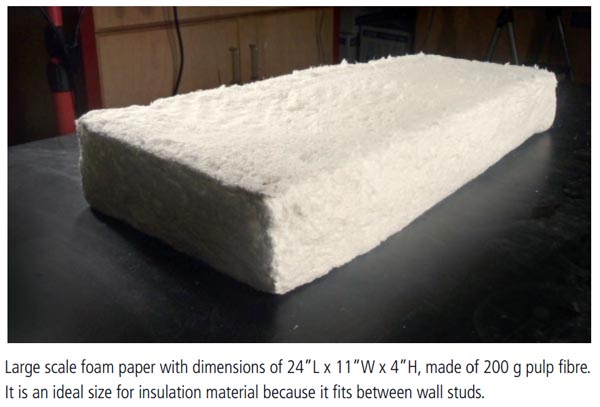Paper Scaffolding Provides Eco-Friendly Construction, Packaging
![]() Print this Article | Send to Colleague
Print this Article | Send to Colleague
The University of British Columbia (Canada) recently put together a team of researchers who successfully created a solvent-free and low-cost process to produce a low-density cellular foam "scaffold" by using green fibers. The porosity and mechanical properties of the foam can be easily adjusted, depending on requirements. This lightweight foam is 100% natural, biodegradable, and carbon-neutral, and it is suitable for a wide range of applications from construction to use in the biomedical industry.

The impact includes:
- In addition to not using solvent, the production process uses significantly less water than traditional foam-forming methods
- Moves many foam industries towards a greener, renewable alternative product
- Reduces the cost of transport and recycling process for foam producers
- Moves construction industry and building towards LEED certification
- Highly antimicrobial, making it great for any food packaging.
Other potential applications include:
- Hospital air filtration systems or clean rooms
- Sound-absorent walls or acoustics for recording rooms
- Thermally insulated (hot or cold) packaging for long-distance transport
- Water filtration
- Enviornmental bioremediation.
For more information email James Olson, the principal investigator for this new product at the University of British Columbia.


